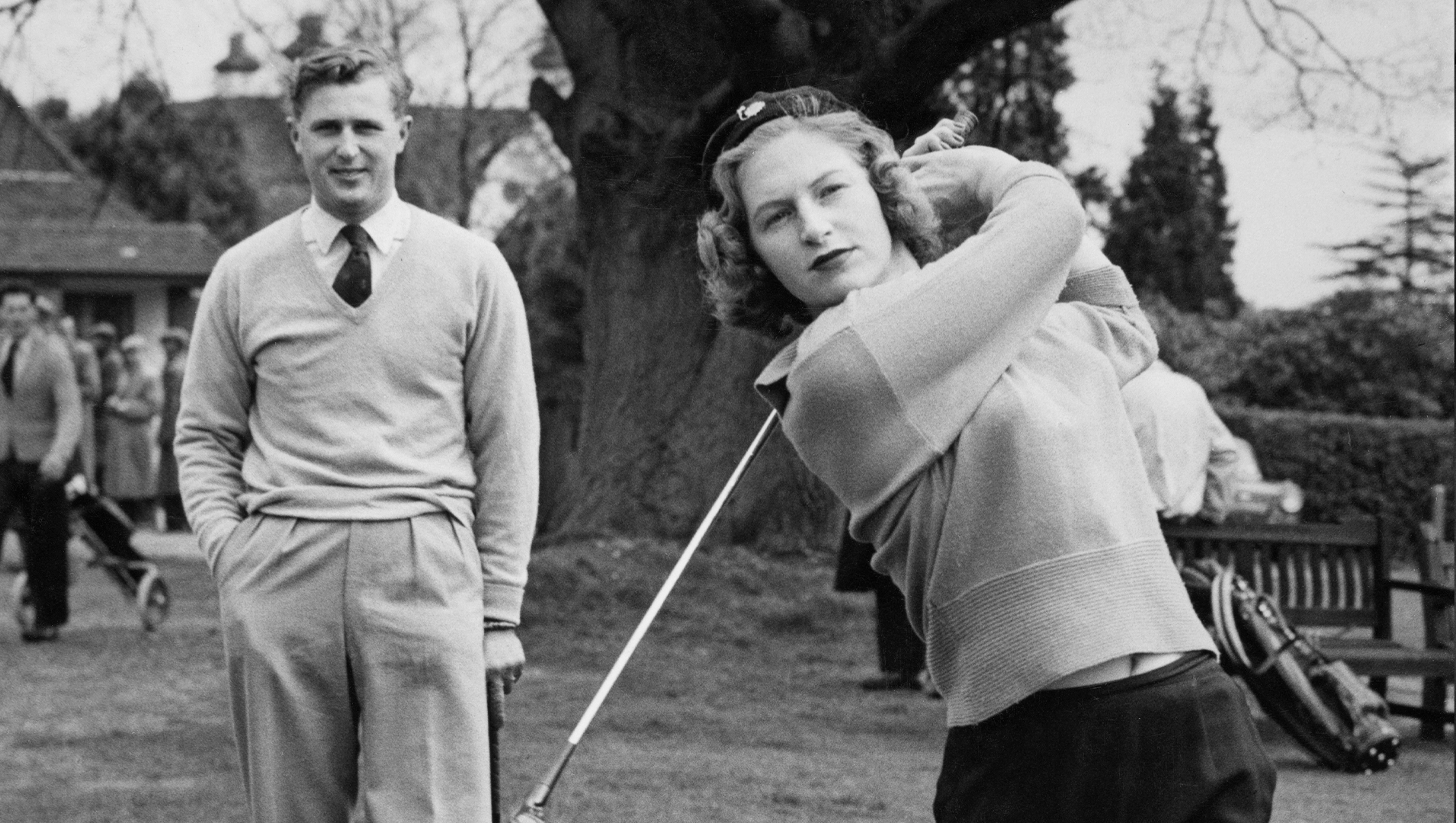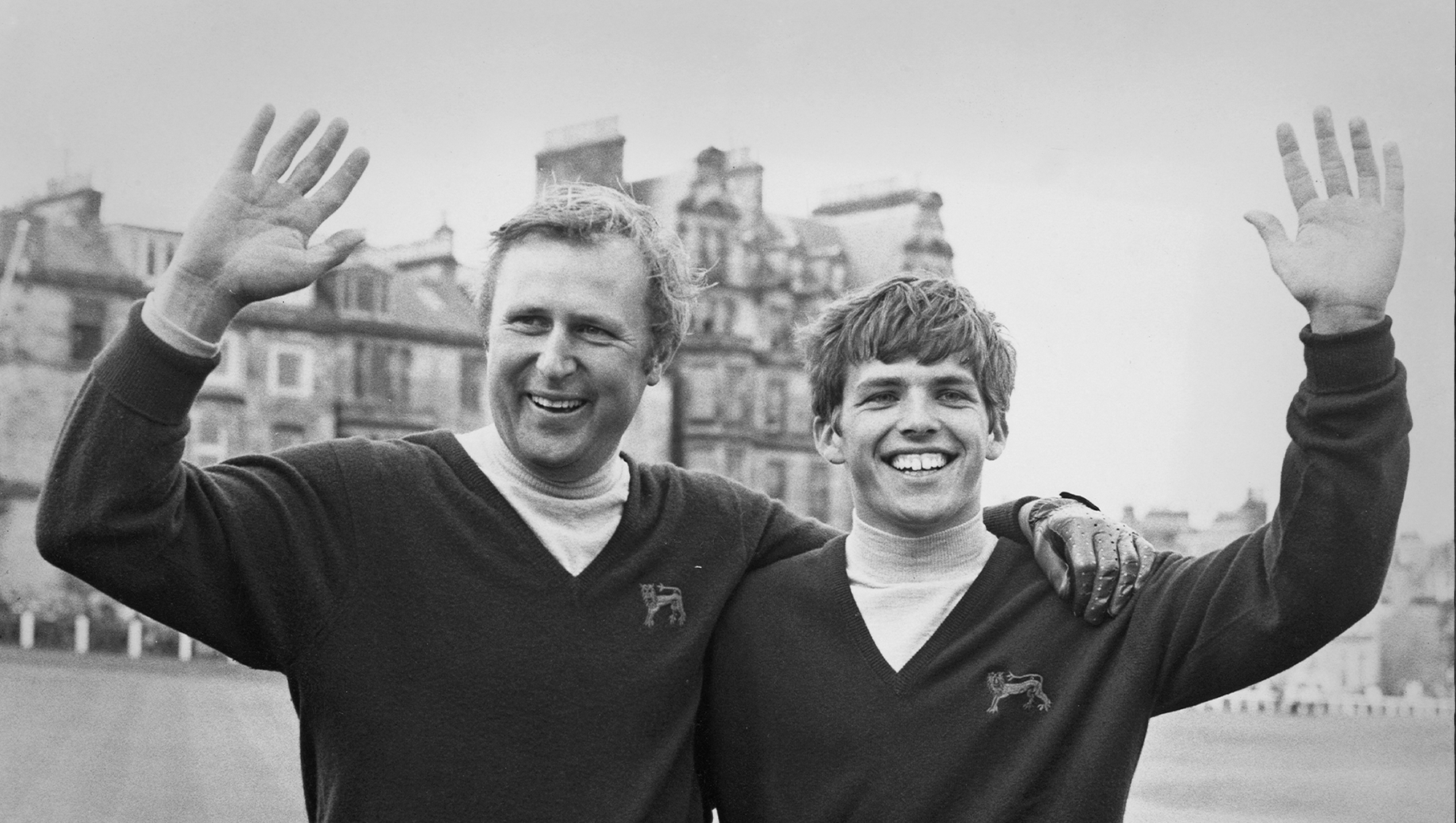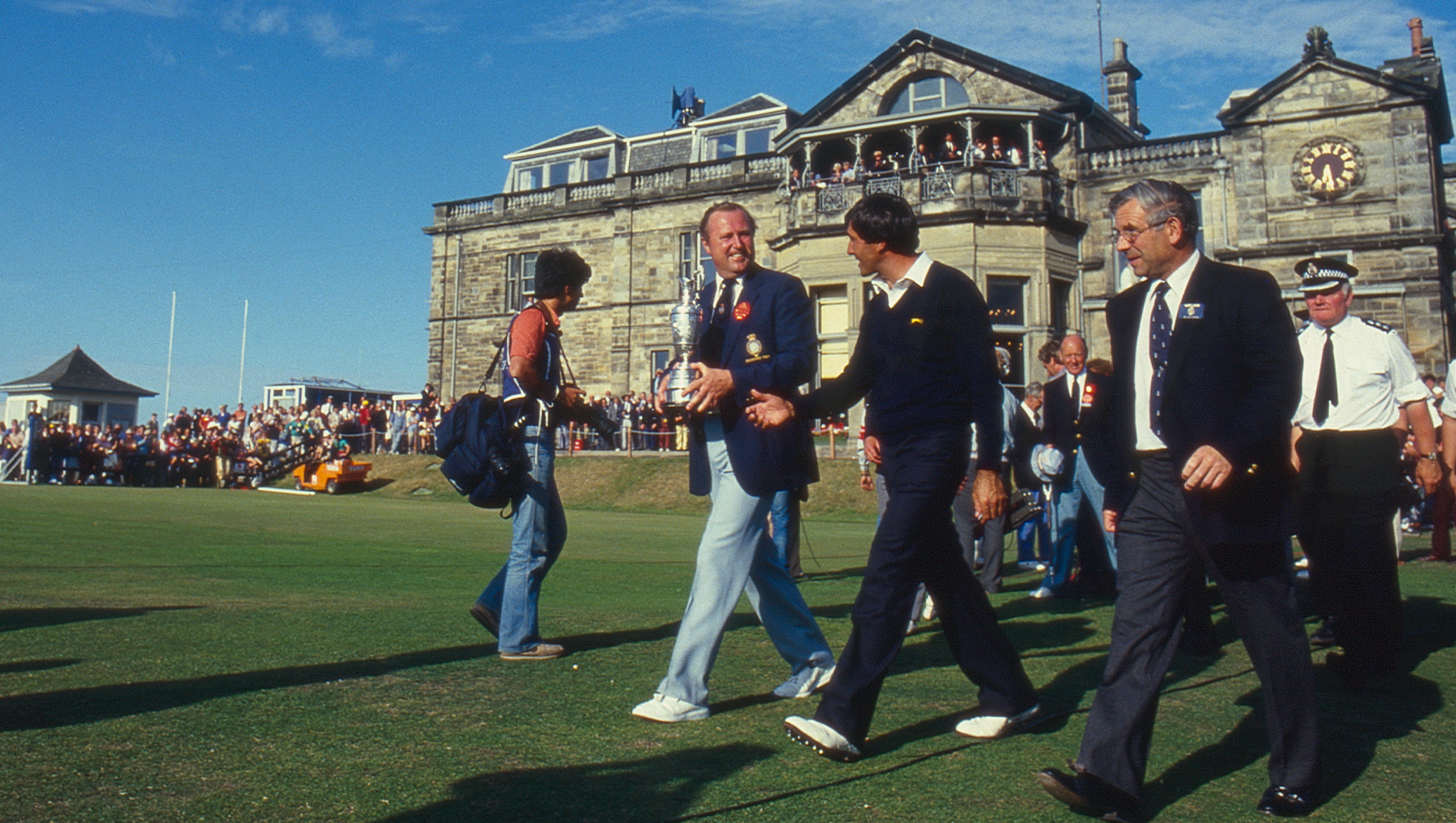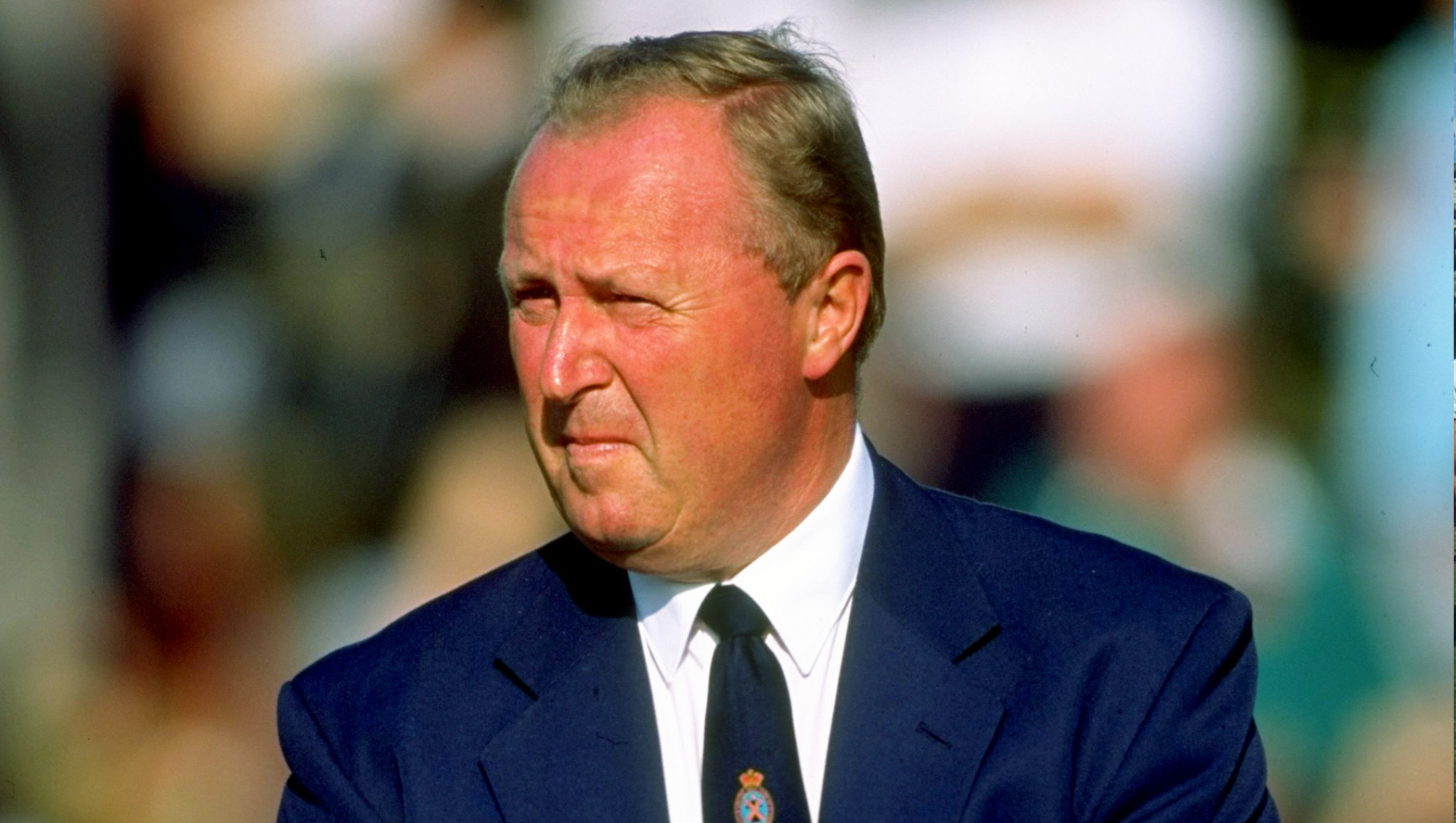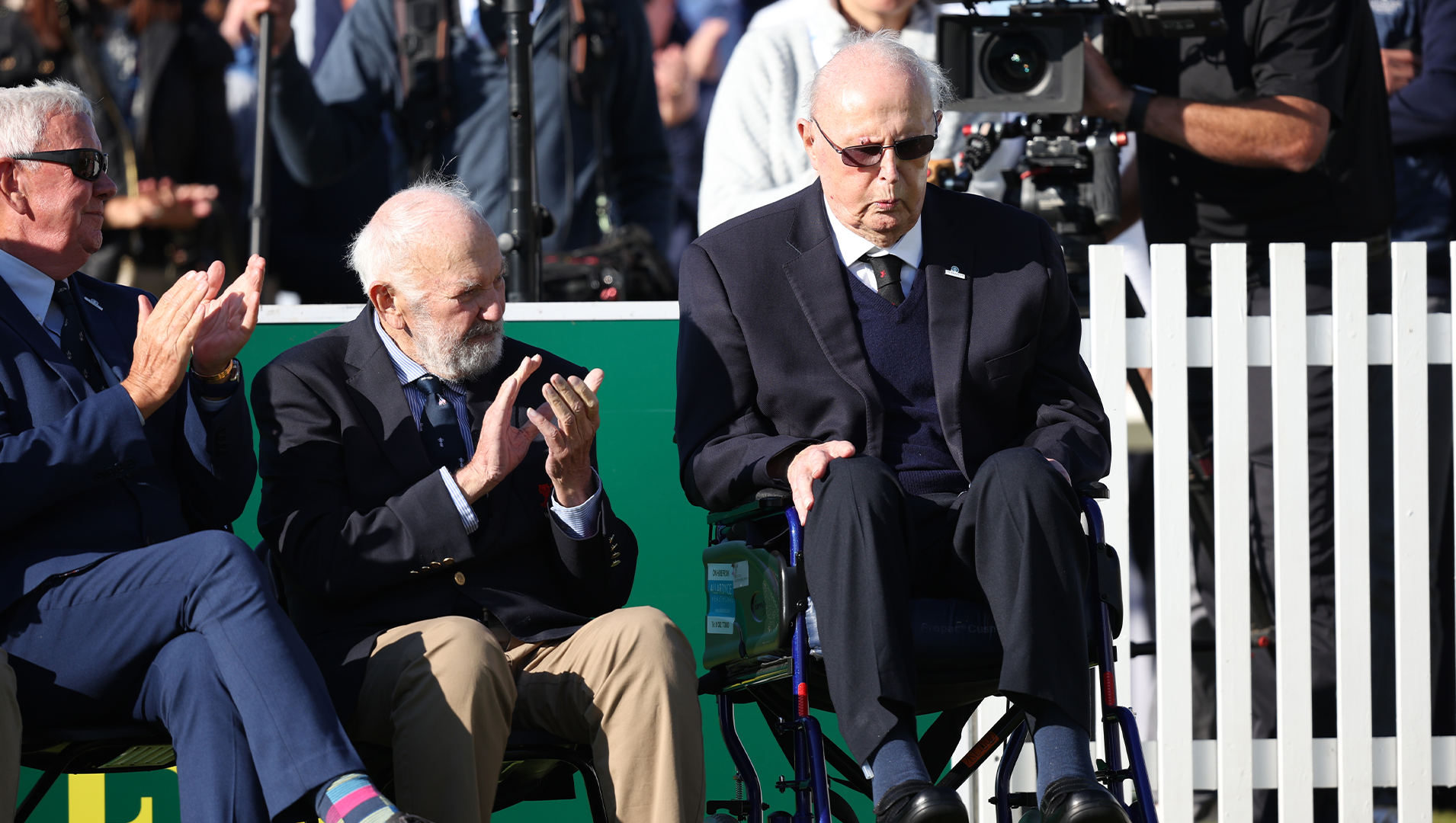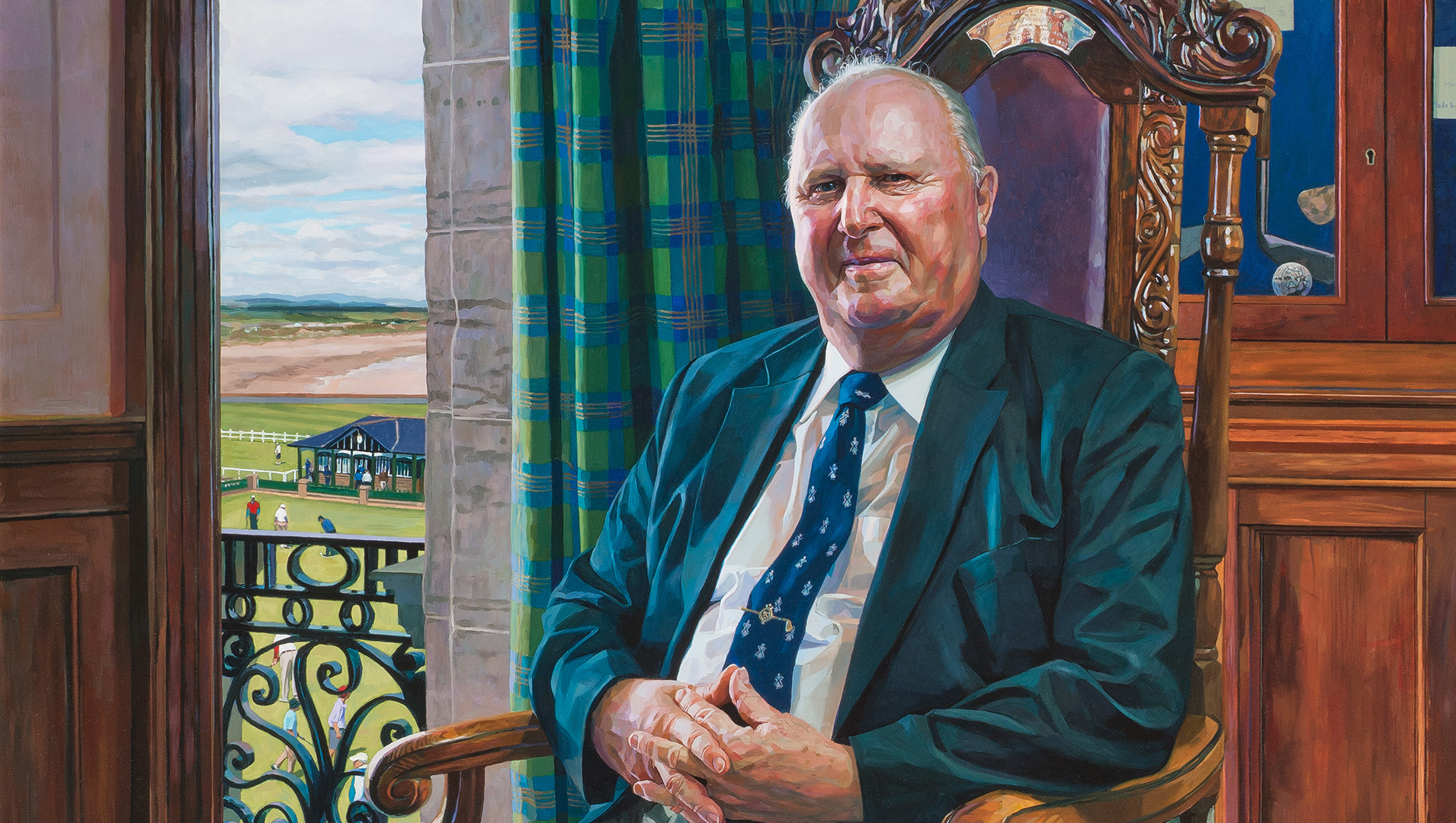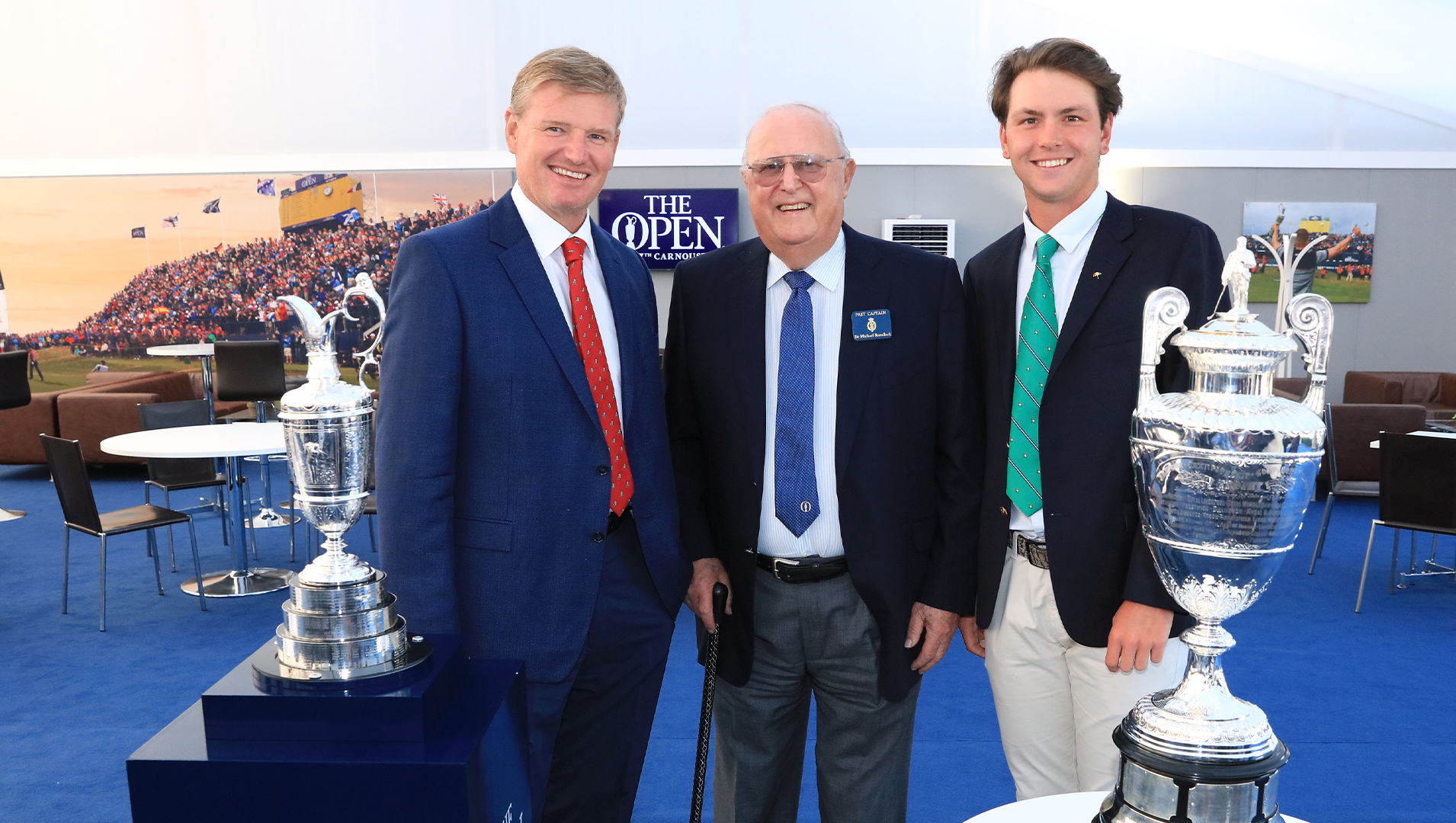Royal and Ancient Golf Club
Obituary – Sir Michael Bonallack OBE
26 Sep 23
3 mins
Sir Michael Bonallack OBE, Britain’s most decorated amateur golfer and a leading figure in the sport, has sadly passed away at the age of 88.
The former Captain and Secretary of The Royal and Ancient Golf Club of St Andrews had been suffering from ill health in recent times but was able to attend the opening ceremony of the recent Walker Cup match at St Andrews where he was given a standing ovation by the many fans who were there to celebrate the centenary of the first staging of the match at the home of golf. Martin Slumbers, CEO of The R&A and Secretary of The Royal and Ancient Golf Club said, “We are deeply saddened to hear of Sir Michael’s passing. He made a huge contribution to golf not only as one of the finest amateur golfers in the history of the sport but also as an extremely effective leader and administrator. Sir Michael was the outstanding amateur golfer of his era and his achievements in The Amateur Championship and the Walker Cup will truly stand the test of time. He led The Royal and Ancient Golf Club at a time of change and did so with great courage, enterprise and foresight. “In recent years he continued to serve the sport through his work on Committees and I personally am extremely grateful for his gracious guidance and support. He will be a huge loss to all of us in golf but particularly here in St Andrews. On behalf of all at The Royal and Ancient Golf Club and The R&A I would like to convey our heartfelt condolences to the Bonallack family.” Peter Dawson CBE, who succeeded Sir Michael as Secretary of The Royal and Ancient Golf Club, said, “Golf has lost one of its very finest. Respected all around the world, Michael was a wonderful player, administrator and ambassador for our sport and he will be sorely missed by so many. His contribution to the game he loved was simply unparalleled. “Speaking personally, I will be forever grateful for his help and advice over so many years and my world seems a much lesser place without him. My thoughts are with Michael’s entire family who have given him such great support since he lost Angela last year.” Born on 31 December 1934 in Chigwell, Bonallack developed an early passion for golf and first won the Essex Boys Championship in 1950, before retaining the title in 1951. A year later he claimed the Boys’ Amateur Championship at Formby. After a few years at Chigwell, Bonallack joined Thorpe Hall Golf Club, near Southend-on-Sea in Essex, which he went on to represent throughout his golfing days. As a strong amateur career developed, he was a member of nine Walker Cup teams from 1957-73 and achieved what was to prove a best-ever finish of tied 11th in The Open that year at Muirfield.An outstanding player who was content to remain an amateur while the professional world expanded, Bonallack went on to win The Amateur Championship and the English Amateur Championship five times. Second only to John Ball for the most victories in The Amateur, his five wins featured a hat-trick of titles from 1968 – 1970.
During the 1960s and early 1970s, he simply defined amateur golf in Britain. Twice he won the Silver Medal as leading amateur at The Open in 1968 (Carnoustie) and 1971 (Royal Birkdale). He also claimed the Brabazon Trophy on four occasions, as well as lifting the Lytham Trophy twice.
Bonallack played golf because he loved playing and also played it at the highest team level, representing his country in the Walker Cup nine times from 1957. The win in 1971 at St Andrews was the first time Great Britain and Ireland had emerged victorious since 1938. Over the Old Course, it was one of the highlights of his career. “I was playing captain that year when we won,” said Bonallack, who was awarded an OBE in 1971. “It does not get, cannot get, any better than that.”
He also played seven times for Great Britain and Ireland in the Eisenhower Trophy and tied first for individual honours in 1968. Four years later he received the USGA Bob Jones Award in recognition of distinguished sportsmanship in golf.
Soon after retiring from competitive play, he joined a golf course design company and served on a number of golf committees. Before taking up his post as Secretary of The Royal and Ancient Golf Club from 1984, Bonallack was Chairman of the European Tour, the Professional Golfers’ Association and the Golf Foundation. He was also President of the English Golf Union in 1982 and Chairman of the advisory committee for the Official World Golf Ranking.
As Secretary for 15 years until 1999, Bonallack helped to successfully guide the sport into the 21st Century. “It’s one continual satisfaction to see the way in which golf is developing,” he said. “Obviously, the expansion of The Open and the fact that we can generate money to put back into the development of the game is very satisfying.” He was also Captain of The Royal and Ancient Golf Club of St Andrews from 1999 – 2000 and, in 2013, received Honorary Membership.
“I’m extremely proud,” he said. “I feel privileged to have been so closely involved with the Club for so much of my life and both it and the town of St Andrews are incredibly dear to me. It has been an honour to serve the Club.”
In recognition of his role as one of the great ambassadors of the game with a wealth of knowledge, Bonallack was awarded a knighthood in Her Majesty The Queen’s birthday honours list in 1998. He was then inducted into the World Golf Hall of Fame in 2000 for his lifetime achievement in golf.
His legacy lives on as teams of 12 amateur golfers from Europe and the Asia-Pacific play for the Sir Michael Bonallack Trophy every two years.
Sir Michael’s wife Lady Angela Bonallack, who was herself one of Great Britain and Ireland’s finest amateur golfers, passed away last year. Sir Michael is survived by their children, Glenna, Jane, Sara and Robert and their ten grandchildren and seven great grandchildren who all play golf.
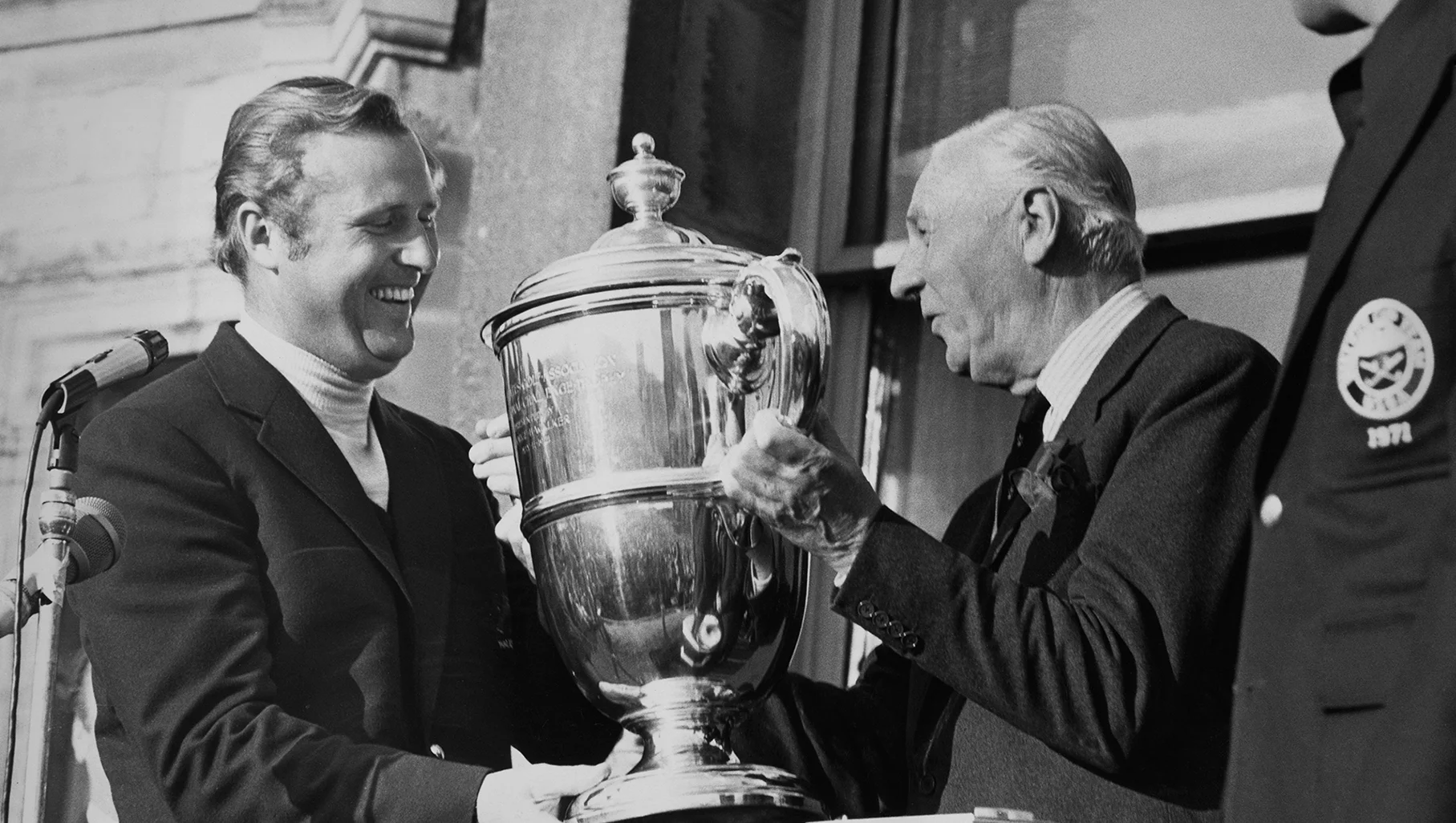
Sir Michael Bonallack lifted The Walker Cup in 1971 as playing Captain of a Great Britain and Ireland team who secured a 13-11 victory at the Old Course, St Andrews.
Walker Cup Squad gather in St Andrews | Gallery | March 2023
Sir Michael Bonallack - 1934-2023
1 / 9



